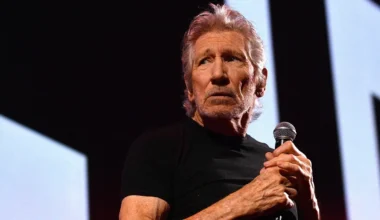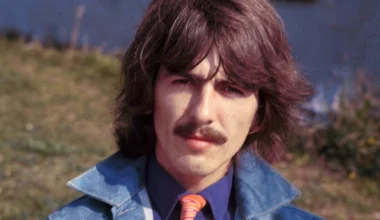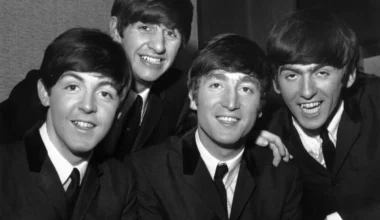Throughout the 1960s, The Beatles served as the public face of Britain, assuming extravagant personas shaped by popular opinion. With front-page photos, clever interviews, and ever-changing songwriting skills, every fan and critic started to form their own conception of each member. George Harrison was the quiet one. Ringo Starr was the funny one, Paul McCartney was the cute one, and John Lennon was the smart one.
These monikers gained popularity through affection and were, for the most part, true. Of course, that all depends on how adorable you found Macca to be and whether you thought Starr was the funniest of four especially clever guys. Harrison’s reputation as the “quiet one” is also only accurate in certain contexts.
Harrison was a bit of a late bloomer as the newest member of The Beatles. He worked around the Lennon-McCartney songwriting duo, squeezing his songs into each album by any means necessary. He became increasingly frustrated with his relatively small album real estate over time. This contributed to the band’s dissolution in 1970.
Harrison’s tastes started to diverge slightly from those of his bandmates, particularly McCartney, which added to his mounting frustrations. Famously, he wrote off the “cute” one’s Abbey Road hit “Maxwell’s Silver Hammer” as a “fruity,” self-obsessed throwaway. After long sessions trying to get the bouncing ditty just right, Starr and Lennon agreed.
Harrison shared Lennon’s preference for more creatively inventive, abstract compositions. The most spiritual of the four, he also had a preference for Eastern influences, as evidenced by the songs “Within You Without You” and “Wonderwall Music,” his debut solo album. Harrison was probably the least talkative member of The Beatles, but that’s only in casual conversation, given his spiritual side. Harrison could become the loudest man in the UK if you touched on a subject that he was interested in, like music or Hindu belief systems.
Tom Petty, a fellow Travelling Wilbury and Harrison’s friend, was one of those who attested to the latter’s self-assurance and forthrightness. With a mischievous smile, the “Free Fallin” singer once admitted to Rolling Stone that Harrison would “never shut up.” Warmly, he said, “He was the best hang you could imagine.” Similarly, Mick Jagger described Harrison as “funny and combative” but also quiet when he wanted to be.
Harrison’s resilience and “combative” edge were key factors in his long survival in a band that included titans like McCartney and Lennon. Harrison was no doormat and never hesitated to voice his opinions about the band’s creative output. McCartney insisted on talking the most during interviews.
Harrison believed that Rubber Soul, the band’s 1965 release, marked the pinnacle of The Beatles’ career. The album appealed to Harrison’s folk-rock tendencies and featured his first popular sitar piece, “Norwegian Wood (This Bird Has Flown),” which was greatly influenced by Bob Dylan. It was the best album we made, in my opinion. We knew we were creating a solid record. In an interview with Crawdaddy in the 1990s, he discussed the album, saying, “We did spend a bit more time on it and tried new things.” Because we were still developing, “we were being more influenced by other people’s music at that time, and everything was blossoming, including us.”
However, Harrison harbored reservations about a few of The Beatles’ other albums. In particular, he thought poorly of two of the band’s studio albums. Harrison said, “There were albums that weren’t good in my opinion, like Yellow Submarine.” “We combined all of the songs into one album. The Beatles primarily seemed upset about the movie’s soundtrack. This included just six songs, including the cheesy sing-along title track from the new masterpiece Revolver.
Harrison mentioned the distinction between the band’s US and UK releases in his evaluation. “I’m talking about the English albums now because we used to put 14 tracks on an album and we had singles that weren’t on albums back then,” he continued. “We later found out that the States had made three albums for every two albums we had.” “They would put the singles in, remove a few tracks, rearrange the running order. Then create new packages, like Yesterday and Today, which were just terrible.”
The 1966 US and Canadian release of Yesterday and Today included a selection of tracks from Rubber Soul, Revolver, and Help!. Harrison took issue with the discordant jumble of material from various artistic products. However, the music on the album won’t exactly be repulsed by entries from Rubber Soul.








